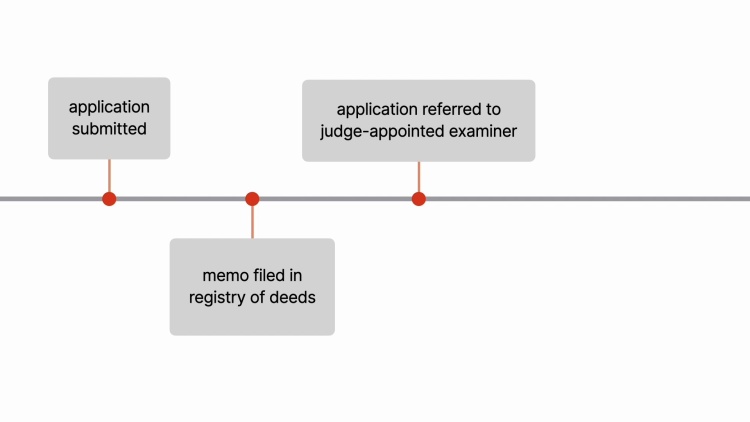Tyler v. Judges of the Court of Registration
Massachusetts Supreme Judicial Court
175 Mass. 71, 55 N.E. 812 (1900)
- Written by John Waller, JD
Facts
The judges of the court of registration (defendants) held a hearing to record the registration of title to a particular parcel of land. Once recorded, the registration would bind the land to the registered owner and quiet its title. The registration would be conclusive upon and against all persons, whether named in the proceedings or not, subject to few and immaterial exceptions. A local statute required that the application for registration clearly set forth all other outstanding interests known to the applicant. The statute also demanded that notice of the hearing be sent to all persons known to have an adverse interest, adjoining owners and occupants, and all others whom it may concern, in addition to being published in a local newspaper and posted conspicuously on the land. Tyler (plaintiff) claimed an interest in the land, and brought suit against the defendants, seeking a writ of prohibition to prevent them from proceeding on the application for registration. Tyler alleged that the act establishing the court was unconstitutional because all persons except the registered owner were deprived of any interest in the land by the registration without due process of law.
Rule of Law
Issue
Holding and Reasoning (Holmes, C.J.)
What to do next…
Here's why 907,000 law students have relied on our case briefs:
- Written by law professors and practitioners, not other law students. 47,100 briefs, keyed to 996 casebooks. Top-notch customer support.
- The right amount of information, includes the facts, issues, rule of law, holding and reasoning, and any concurrences and dissents.
- Access in your classes, works on your mobile and tablet. Massive library of related video lessons and high quality multiple-choice questions.
- Easy to use, uniform format for every case brief. Written in plain English, not in legalese. Our briefs summarize and simplify; they don’t just repeat the court’s language.






